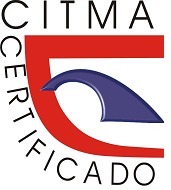Knowledge audit at the Center for Digital Government Studies
Keywords:
knowledge audit, knowledge, knowledge managementAbstract
The knowledge audit constitutes the initial step of any Knowledge Management action, which ensures that knowledge is managed better and brings important benefits in the development of organizations. Therefore, given the need for continuity of improvement of the Scientific Observatory of Digital Government of Cuba project and the request to continue the research carried out, this work aims to carry out a knowledge audit in the Center for Digital Government Studies. To do this, theoretical aspects regarding the knowledge audit are addressed, the methodological steps for the application of the audit are determined, the Center for Digital Government Studies is characterized and the results that make up the final audit report are analyzed. It relies on Ponjuán (2018) methodology to reveal knowledge in the main processes. The questionnaire is used as a methodological instrument, composed of variables conceived by Ponjuán (2018). The knowledge audit in the Study Center manages to identify the main knowledge that members have at three levels (Basic, Advanced and Expert) and the knowledge gaps are also appreciated. The professional development of the members could be verified, as well as the exchange of knowledge at three different levels.
References
Aguiar Díaz, A., León Santos, M. y Torres Ponjuán, D. (2020). Auditoría del conocimiento en gobiernos locales: el caso del Gobierno Municipal de Centro Habana. Alcance. Revista Cubana de Información y Comunicación, 9(23): 220-232. http://scielo.sld.cu/scielo.php?script=sci_arttext&pid=S241199702020000200220
Dalkir, K. (2005). Knowledge Management in Theory and Practice. McGill University.
Hernández Barrios, A. y Ponjuan, G. (2019). Auditoría del conocimiento enfocada a los procesos principales y capital humano. Un estudio de caso en la Biblioteca Nacional de Cuba. Bibliotecas. Anales de Investigación; 15(3): 315-332
Hylton, A. (2002). A KM initiative is unlikely to succeed without a knowledge audit. [Archivopdf] http://www.providersedge.com/docs/km_articles/km_initiative_unlikely_to_succeed_without_a_k_audit.pdf
Hylton, A. (2002). Measuring & Assessing Knowledge-Value & the Pivotal Role of the Knowledge Audit. [Archivo pdf] http://providersedge.com/docs/km_articles/Measuring_&_Assessing_K-Value_&_Pivotal_Role_of_K-Audit.pdf
León Santos, M., Ponjuán Dante, G., & Rodríguez Calvo, M. (2006). Procesos estratégicos de la gestión del conocimiento. ACIMED, 14(2). http://scielo.sld.cu/scielo.php?script=sci_arttext&pid=S102494352006000200008&lng=es&tlng=es
Observatorio de Gobierno Digital (2020). Centro de Estudios de Gobierno Digital http://gobiernodigital.fcom.uh.cu
Pérez Vargas, T. (2021). Diseño de estrategia de Gestión del Conocimiento para el Observatorio de Gobierno digital en Cuba. Tesis de Licenciatura, Facultad de Comunicación, Universidad de La Habana.
Ponjuán, G. (2018). Diseño de una auditoría del conocimiento organizacional orientada hacia los procesos principales y el desarrollo profesional. Revista Cubana de Información en Ciencias de la Salud, 29(3).
Ponjuán Dante, G. y Magda, L. S. (2020). Auditoría del conocimiento en una institución docente. Experiencias. ALCANCE Revista Cubana de Información y Comunicación 9(23): 203-219.
Salas García, G. y Ponjuán Dante, G. (2014). Auditoría del conocimiento orientada a procesos principales en un área biomédica. Revista Cubana de Información en Ciencias de la Salud 25(3): 303-316.
Velázquez Cruz, I. (2021). Sistema de Gestión del Conocimiento: propuesta para el Observatorio del Centro de Estudios de Gobierno Digital en Cuba. Tesis de Licenciatura, Facultad de Comunicación, Universidad de La Habana.
Published
How to Cite
Issue
Section
License
Copyright (c) 2024 Amanda Águila-Domínguez, Magda León Santos, Thais Massiel Pérez Vargas

This work is licensed under a Creative Commons Attribution-NonCommercial 4.0 International License.












